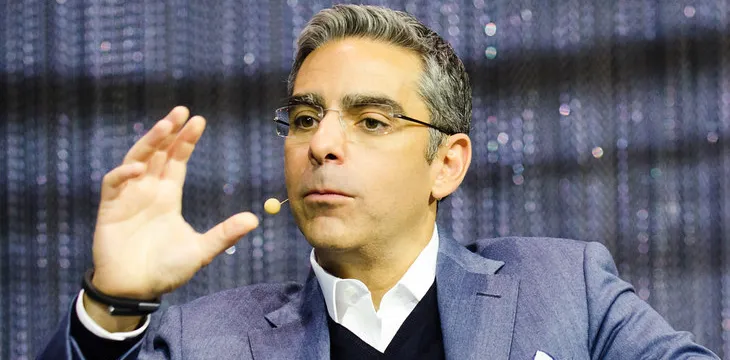|
Getting your Trinity Audio player ready...
|
For his second day in Washington, D.C., Calibra executive David Marcus had to face the House Financial Services Committee and one of Facebook’s biggest critics, Democratic Chairwoman Maxine Waters. While the House Committee was always stressing that they did not want to discourage Libra’s innovation, nobody wants to get on board with it if it’s going to threaten America’s institutions.
Waters hit Marcus with skepticism and concern early and hard in the hearing. “I have serious concerns with Facebook’s plans to create a digital currency and digital wallet,” she said in her opening statement. “Facebook is apparently trying to create a global financial system.”
She went on to list all the scandals Facebook has faced over the years, including Cambridge Analytica and Russian hacking, but also pointing to lack of diversity in the company, and the possibility that poor minorities could be exclude from businesses. She worried that their choice of Switzerland as their operating base was due to the countries storied history as a safe haven for criminal funds. She ended her statement by calling on them to start a moratorium on their project until regulators had a better look at it.
Ranking member Patrick McHenry, the top Republican on the panel, took an opposite slant with his opening comment. “Washington must prove it’s not the place where innovation goes to die,” he said. He also specifically pointed to the vision of Satoshi Nakamoto quickly becoming a reality, no matter what world governments chose to do about it.
In his response to those statements, Marcus committed that Facebook won’t launch Libra without all necessary approvals. When it does, The Libra Association expects it to be a safe, secure, low cost way to transfer money around the world. He then went back to the standard Libra talking points, claiming Facebook will only have 1 vote in the digital currencies future.
Also, in response to some of the concerns from the July 16 Senate hearings, Marcus promised Calibra won’t share user data with Facebook, except in narrow cases dealing with fraud or the law.
When questioned by Waters about how Facebook is addressing its past scandals in the build up to Libra, Marcus responded “We own these mistakes.” However, when pressed on how the Libra Association was built, he had to admit Facebook has been the sole investor and builder of the technology
In McHenry’s line of questioning, he asked how Libra can be regulated if it doesn’t admit to being similar to any current form of bank or currency. Marcus responded that Calibra is registering as a money services business (MSB), and looks to work with regulators across the world to address other concerns. McHenry: How do you regulate something that doesn’t fall under current regulations?
Beyond the two top members of the committee, there was bipartisan agreement that Marcus had to do better at answering questions, but for very different reasons. Democrats pressed Marcus on why he wouldn’t agree to a moratorium on building Libra while Congress deliberated, which he seemed frustrated with as he repeatedly promised Libra won’t launch without regulatory approval.
Meanwhile, Republicans pressed him on questions of user liberty. Congressman Sean Duffy specifcially grilled Marcus on if Libra it will allow lawful transactions that Facebook has already banned, with gun sales being a specific example of that. Marcus would not answer the question, but alluded to it being something the Libra Association has to discuss in the future.
The tough questions from both sides of the aisle should not be surprising to Marcus. Waters has been clear since Libra’s announcement that she did not trust Facebook to handle Americans money in a digital form. She’s cited the social media giants’ problems with Russian hackers, fake accounts and human trafficking as reasons to distrust the site.
This all also adds to the comments made by Senators on July 16, when they grilled Marcus and the Libra Associations plan to roll out the new digital currency. Democratic Senator Sherrod Brown of Ohio said the country would be crazy to trust Facebook with its money, and his Republican colleague Martha McSally of Rhode Island agreed that the site needs to do more to gain the public’s trust.

 06-30-2025
06-30-2025 





